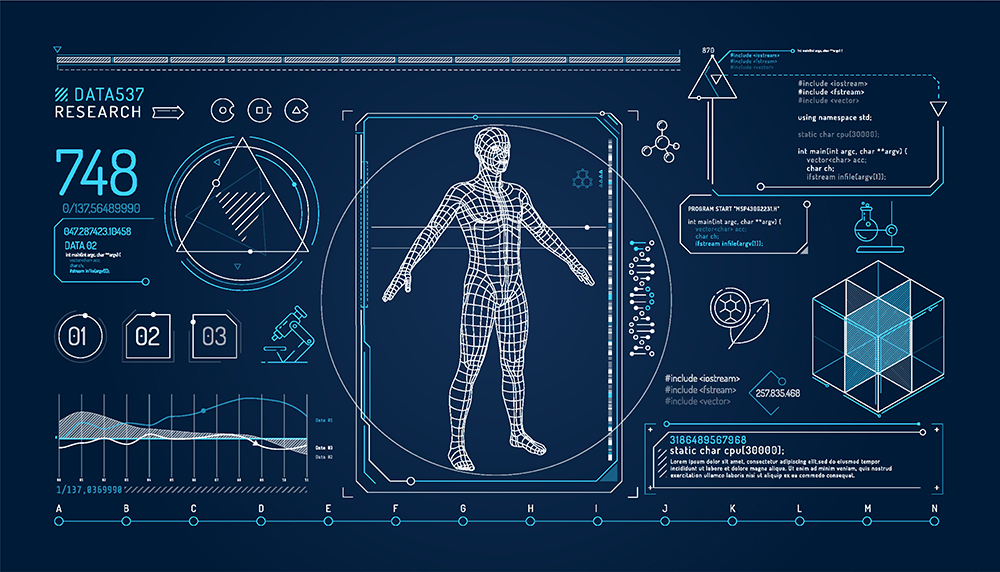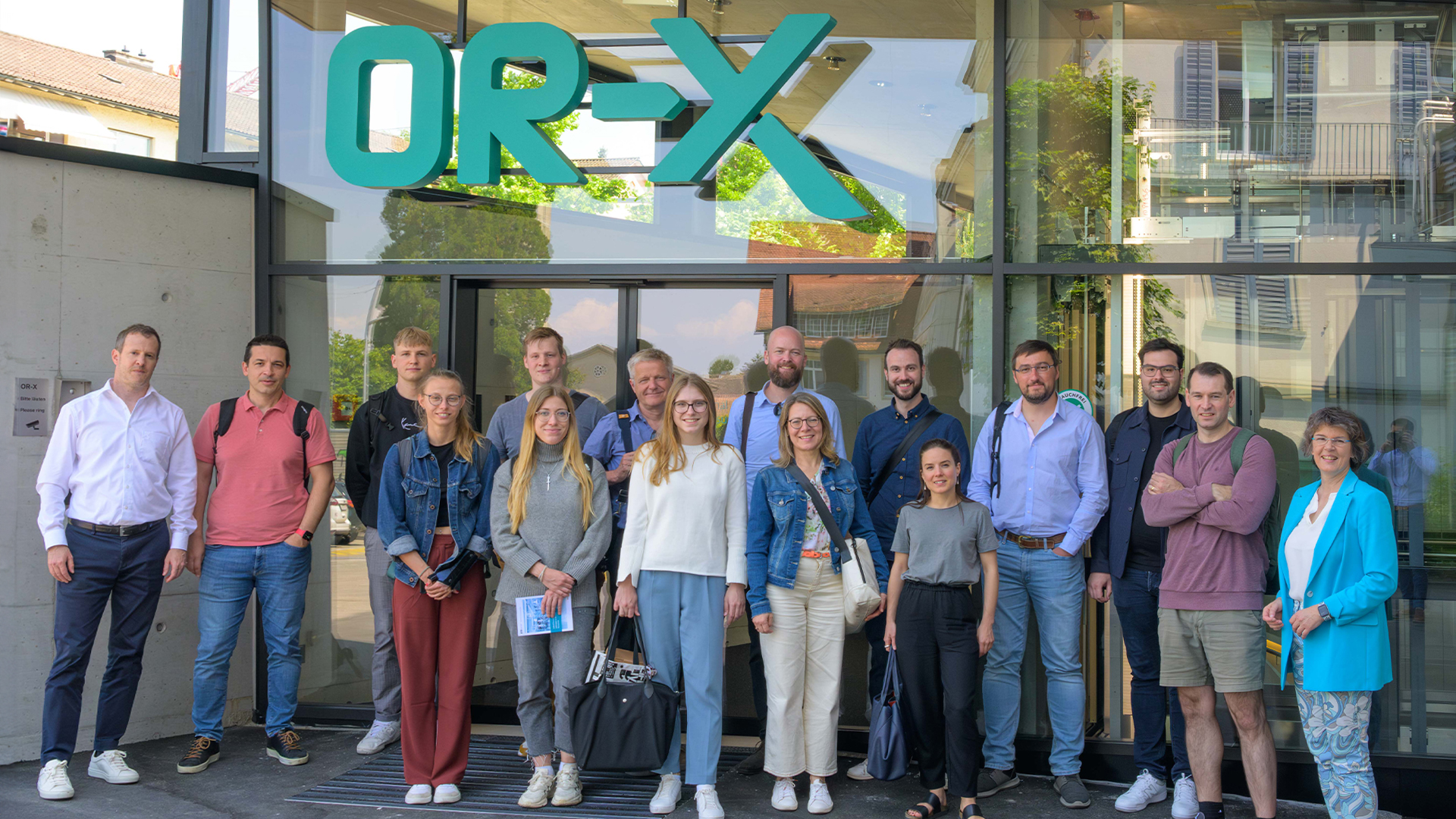Short courses
If you have only a limited amount of time available and want to dive deeply into a certain topic in the life sciences, our ETH Pearls short courses are just the thing for you.

ETH Pearls short courses are short, intensely focused continuing education courses that are normally offered only to participants in the CAS or MAS programmes. You will gain impactful insights and learn from specialists in your field of interest. The number of participants is restricted.
The duration of the ETH Pearls depends on the chosen short course; each one involves between 20 and 45 contact hours plus blended learning over a period of one to two months. Most lectures are given online; we recommend that you attend the few on-site events (lectures/workshops) offered in each module to facilitate your learning and to profit directly from group discussions, interactions with the faculty, and networking opportunities. If this is not possible for you, you can attend the entire course online via videoconferencing (hybrid learning on request), with the exception of a few courses.

This short course will provide participants an in-depth understanding of both foundational concepts and practical realities in developing new digital measures, biomarkers and endpoints for use in clinical trials.
Who will benefit from this course?
The ETH Pearl Digital Measures is designed for physicians, health care providers, and professionals in start-ups, MedTech and pharma companies, in Clinical Research Organisations (CRO's) and patient organisations.
Course content
Foundations of developing, validating and qualifying novel digital evidence generation tools for use in clinical trials:
- Patient-Focused Drug Development and Patient-centricity in Evidence Generation
- Symptom-Sensor Mapping and Evaluation Foundations
- Technology Evaluation and Selection
- Evaluation of Digital Measures
- Digital Measure Qualification
- Digital Measures in Reimbursement
The course includes input lectures, remote preparation, blended learning, and a workshop. Participants will develop their own conceptional case studies for a novel digital measure: exploring the application of patient-centric research; best practices for deciding on the right technology; validation of the new measure. Complimentary learning material is provided online.
This ETH Pearl Digital Measures comprises one module of the CAS ETH in Digital Clinical Trials. The module is approved by SIWF. Swiss doctors who complete this course will receive 25 credits toward their non-specific continuing education requirements.
Course language: English
Course dates & fees | Digital Measures
When: November 2026
Dates:
Course dates will be announced soon
The course has a total duration of 5 weeks. Main teaching day (onsite or remote) is Thursday. Please, plan with an allocation of 5–8 hours per week for self-study.
Course fee: CHF 3,600, CHF 1,800 for employees of ETH Zurich and study project partner
Registration deadline: will be announced soon

This short course explores how wearables and apps generate and utilise new data, e.g. in decentralised clinical trials. Participants will learn sensor integration, data management, and regulatory aspects through lectures, flipped classrooms, and hands-on workshops.
Course content
Before the module, participants receive wearable devices to monitor their own vital signs, gaining first-hand experience in device management and troubleshooting. The course begins remotely with Health Technology Assessment and Regulatory Thinking sessions, followed by a three-day on-site block featuring practical sensor exercises, usability testing, and a hospital visit to observe real-world applications.
The module covers the entire technological chain, from device selection and data transfer to storage and analysis, with real-world case studies. A Technology Fair connects participants with digital health startups, exploring trial design, ecosystem partnerships, and execution strategies. Experts provide insights into challenges and solutions for integrating sensor technology into clinical research.
Who will benefit from this course?
The ETH Pearl Digital Health Technology is designed for physicians, health care providers, and professionals in start-ups, MedTech and pharma companies, in Clinical Research Organisations (CRO's), insurance companies and patient organisations.
Learn from our lecturers, who bring diverse perspectives and applications.
From ETH:
Professor Dr Carlo Menon, Biomedical and Mobile Health Technology Laboratory, D-HEST | ETH Zurich
PD Dr Caroline Lustenberger, Neural Control of Movement Lab, D-HEST | ETH Zurich
Dr Marieke Weijs, Neural Control of Movement Lab, D-HEST | ETH Zurich
Dr Dietmar Schaffarczyk, Regulatory expert, D-HEST, ETH Zurich
From hospitals:
Professor Dr Jens Eckstein, University Hospital of Basel
Dr Pamela McLaughlin, University Hospital Basel
From other academic institutions:
Dr Christine Jacob, University of Applied Sciences Northwestern Switzerland
From the industry:
Chris Gugl, CEO, Evoleen AG, Zurich
Lukas Geissmann, Leitwert AG
Anne Kilburg, Boehringer Ingelheim
Course language: English
Course dates & fees | Digital Health Technology
When: 26.03–28.05.26
Dates:
12.03.2026 Thu 16:45–17:15 (ETH Zurich, HG F26.1) - Introduction
26.03.2026 Thu 8:45–17:00 (remote)
15.04.2026 Wed 9:15–16:00 (ETH Zurich, HG F26.1)
16.04.2026 Thu 9:00–17:00 (Basel, details t.b.a.)
17.04.2026 Fri 09:00–17:00 (ETH Zurich, CHN G46)
23.04.2026 Thu 9:00–17:00 (remote)
07.05.2026 Thu 9:00–17:00 (remote)
21.05.2026 Thu 09:00–18:00 (ETH Zurich, Campus Balgrist)
28.05.2026 Thu 9:00–17:00 (ETH Zurich, HG F 26.1)
Please, plan with an allocation of 2–5 hours per week for self-study.
Course fee: CHF 3,600, CHF 1,800 for employees of ETH Zurich and study project partner
The seats are limited.

The short course Essential Statistics for Medicine I aims to assist participants in accessing and/or refreshing their statistical knowledge for its application in medicine.
In this short course, interactive online learning is utilised to develop an intuitive understanding of essential aspects of statistics in medicine. Each week, participants will engage in exploring concepts such as random variables and hypothesis tests. Additionally, a three-hour coaching session per week will aid in comprehending and applying the blended-learning content to real-world medical examples and research articles. The coaching sessions will be conducted on-site at ETH Zurich.
This course is also recognised as pre-course for the continuing education programmes CAS ETH in Digital Clinical Trials or MAS ETH in digital Clinical Research.
Course content (one block per week)
- Block 1: Introduction to probability, data analysis & statistics
- Block 2: Statistics fundamentals
- Block 3: Random variables & distributions
- Block 4: Statistical data analysis
The course has a total duration of 4 weeks, with an allocation of 4–5 hours per week for self-study (totaling 16–20 hours of self-study) and 3 hours of contact time per week. Course language: English
Course dates & fees | Essential Statistics for Medicine I
The dates for the next course will be announced soon.
Course fee: CHF 1300, CHF 500 for ETH employees

Dive into the essence of clinical trials, discover patient-centric approaches, and explore novel study designs. This ETH Pearl comprises one module of the CAS ETH in Digital Clinical Trials. It will guide participants through designing a clinical study and introduces established study designs and study elements, as well as modern study concepts and observational designs to address clinical questions. Another focus is on patient perspectives and patient preference studies.
This continuing education short course is designed for physicians, health care providers, and professionals in start-ups, MedTech and pharma companies, in Clinical Research Organisations (CRO's) and patient organisations. Swiss doctors who complete this course will receive 25 credits toward their non-specific continuing education requirements (approved by SIWF).
Course content
- Patient-centred research
- Patient involvement in human research
- Overview of study designs
- Designing clinical studies with outcomes that matter to patients
- Outcomes in clinical studies, definition, hierarchies, Clinical Outcome Assessments (COA), psychometric methods for validating Patient-Reported Outcomes (PROs), and cross-cultural adaptations
- Feasibility of clinical studies
- Observational studies and their role in clinical research: Pros and cons
- Bias and confounding
- New study designs: adaptive, basket, umbrella, data-enriched design
- Decentralized Clinical Trials
- Planning and conducting clinical studies in an ethical way
The course has a total duration of 5 weeks. Please, plan with an allocation of 5–8 hours per week for self-study.
Course language: English
Course dates & fees | The Power of Study Design (From Clinical Problem to Research Question and Modern Study Concepts)
The next course will start in September 2026.
23.09.2026 Wed 9:00–17:00 (ETH Zurich, t.b.a.)
24.09.2026 Thu 9:00–17:00 (ETH Zurich, t.b.a.)
25.09.2026 Fri 9:00–17:00 (ETH Zurich, t.b.a.)
08.10.2026 Thu 11:00–18:00 (remote)
15.10.2026 Thu 9:00–17:00 (ETH Zurich, t.b.a.)
22.10.2026 Thu 9:00–17:00 (TBC)(remote)
Course fee: CHF 3,000, CHF 1,800 for employees of ETH Zurich and study project partner
Registration deadline: 21.09.2026

The ETH Pearl Real-World data (RWD) provides an overview of the importance of RWD, different RWD sources, and how RWD can be exploited in healthcare, clinical and personalised health research, as well as in regulatory decision making. The course will address ethical, methodological and regulatory challenges related to the use of RWD in clinical research and health care.
This continuing education short course is approved by SIWF. Swiss doctors who complete this module will receive 25 credits toward their non-specific continuing education requirements.
Course content
- Introduction and Overview: Importance of RWD and their potential in healthcare, clinical research, personalised health research, as well as regulatory decision making; Overview on different RWD types, source systems of RWD, RWD availability, and challenges related to the use of RWD.
- Challenges of RWD; Clinical Data Platforms: General introduction on clinical data, detailed description of the set-up of a Clinical Data Platform, aspects of data interoperability, standards and quality. What does it take for the further use of RWD in a hospital setting? Aspects of data specification, data de-identification, and data provisioning for secondary usages.
- Routine clinical data: Prerequisites for working with health data; Implementation of the legal and ethical requirements when handling health data.
- From data to value: Deep dive in RWD interoperability aspects and semantics; Data models, data standards, ontologies, classifications and Terminologies; FAIR data.
- RWD in Switzerland and abroad: Insights in examples of RWD collections in Switzerland and their challenges and chances; International examples of RWD applications; RWD and its use in pharma industry.
- Practical exercise: Get your hands on data (mock datasets will be made available), characterize/profile the dataset, query the data, identify data quality issues, etc.
Course language: English
Course dates & fees | Real-World Data
Main teaching day (onsite or remote) is Thursday. The course has a total duration of 5 weeks. Please, plan with an allocation of 5–8 hours per week for self-study.
19.02.2026 Thu 9:15–17:15 (ETH Zurich, room HG F 26.1)
26.02.2026 Thu 9:15–17:00 (remote)
05.03.2026 Thu 9:15–17:00 (ETH Zurich, room HG F 26.1)
12.03.2026 Thu 9:15–17:15 (ETH Zurich, room HG F 26.1)
19.03.2026 Thu 14:10–17:15 (remote)
Course fee: CHF 3,000, CHF 1,800 for ETH employees
Registration 1.12.25–15.02.26


For further details, please contact Dr Sabine Goldhahn, Programme Manager
Professur Translationale Ern.biol.
Schorenstrasse 16
8603
Schwerzenbach
Switzerland

Disclaimer
Please note that while we endeavor to provide accurate and up-to-date information in our curriculum, the dates, times, format, and content of the courses are subject to change. We reserve the right to make adjustments to the curriculum as needed. We recommend participants regularly check for updates and will strive to communicate any changes in a timely manner. Your understanding and flexibility are greatly appreciated.
FAQ: Can I take a short course first and then continue with the CAS ETH in Digital Clinical Trials or the MAS ETH in digital Clinical Research?
Yes, it is possible, but please read the following information below:
1. Participants of a short course are not automatically eligible for participating in the CAS ETH DCT or the MAS ETH diCR continuing education programmes.
2. Under the following conditions it is possible that a completed short course for the CAS ETH DCT is recognised as a completed module and does not have to be retaken:
• the acceptance is only possible for the next course of the CAS ETH DCT
• the ETH Pearl is a module of the CAS ETH DCT
• the participant must complete and pass the required credits of the module to earn the ECTS
• the admission criteria for the CAS ETH DCT apply
The fee for the completed short course will not be fully refunded when applying for the CAS ETH DCT. However, 50% of it will be deducted from the CAS ETH DCT course fee when registering for the complete CAS ETH DCT programme.